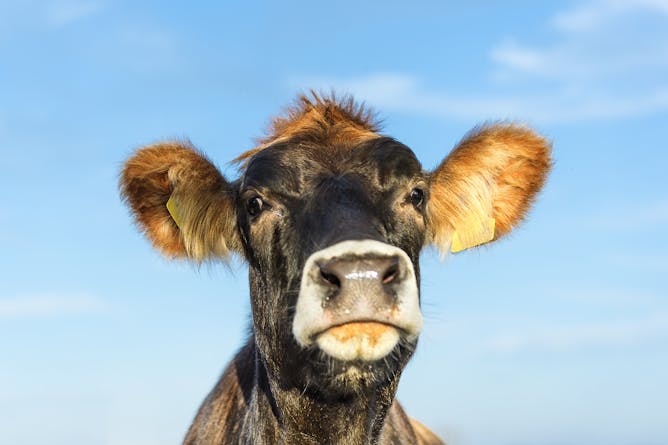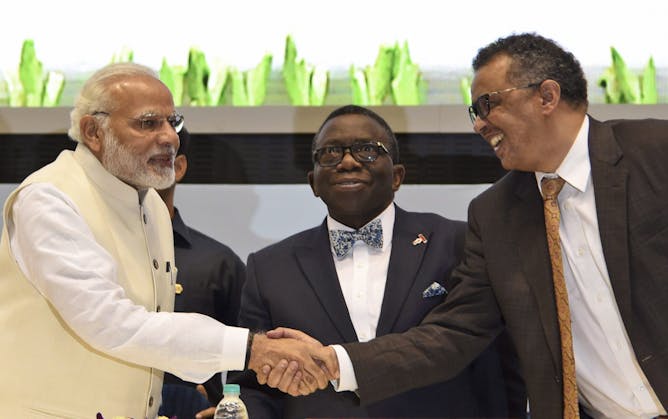|
Several critical Canadian elections are being held in the months to come and voters will go to the polls federally in October 2019. Today in The Conversation Canada, Sara Bannerman of McMaster University warns the type of social media-fuelled election interference that may have swayed results in the 2016 U.S. presidential election could happen in Canada if governments and politicians don’t act. “The Liberal government and all political parties should put in place regulations to help safeguard the integrity of our democracy by ensuring the actions of social media companies will withstand public scrutiny,” she writes in a passionate argument against trusting companies like Facebook and Twitter to
self-regulate.
Yesterday, our gross-out story involved eating crickets. Today, brace yourself – it’s eye worms. A stomach-churning viral video of an Oregon woman removing cattle eyeworms from her eyes has renewed interest in parasites that jump from animals to humans. Katie M. Clow of the University of Guelph tells us how it happens.
And finally, Saturday is World TB Day, and eradicating the disease finally looks like an achievable goal, writes Madhukar Pai of McGill University. But he emphasizes that ridding the world of tuberculosis will require political leaders to step up with cash and actions to match their public declarations.
Regards,
|

Some of the Facebook and Instagram ads linked to a Russian effort to interfere in the 2016 U.S. presidential election.
(AP Photo/Jon Elswick)
Sara Bannerman, McMaster University
Several critical Canadian elections are ahead. Here's what governments and social media companies must do to assure Canadians that their online personal data won't be used to manipulate results.
|

Thelazia gulosa is an eyeworm parasite that infects cows. But an Oregon woman’s discovery of the worms in her own eyes has raised concerns about parasites that jump from animals to humans.
(Shutterstock)
Katie M. Clow, University of Guelph
A stomach-churning viral video of an Oregon woman removing cattle eyeworms from her eyes has renewed interest in parasites that jump from animals to humans. Here's all you need to know.
|

Indian Prime Minister Narendra Modi, left, with World Health Organization Director General Tedros Adhanom Ghebreyesus, right, and Nigerian Health Minister Isaac Folorunso Adewole, at the End TB Summit in New Delhi, India, March 13, 2018.
(AP Photo)
Madhukar Pai, McGill University
On World TB Day 2018, eradicating TB finally looks like a goal that could be met — if political leaders can step up with cash and actions to match their political declarations.
|
Science + Technology
|
-
Annabel Latham, Manchester Metropolitan University
The privacy backlash over Cambridge Analytica and Facebook may lead to explosive consequences for academics.
|
|
Culture + Society
|
-
Marie Helweg-Larsen, Dickinson College
Their culture places a high value on something many Americans don't.
|
|
Environment + Energy
|
-
Franck Guarnieri, Mines ParisTech
On March 11, 2011, a nuclear disaster struck Japan. Translated testimony by the power plant's manager reveals how close the world came to a greater catastrophe -- and how much there is to be learned.
|
|